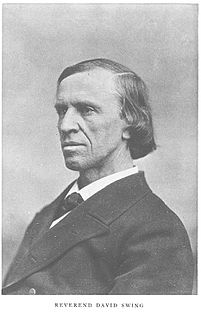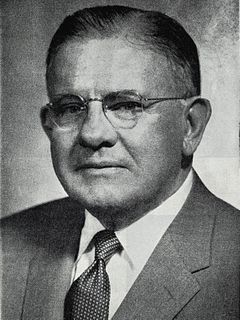A Quote by Thomas Jefferson
I suppose, indeed, that in public life, a man whose political principles have any decided character and who has energy enough to give them effect must always expect to encounter political hostility from those of adverse principles.
Related Quotes
That's the one thing a politician mustn't have - political opinions or principles. He can have prejudices - indeed he must have prejudices and share all the popular political superstitions of the moment as ardently as he can. But he must not have principles. He must never let the people suspect that they cannot eat their cake and have it. He must promise them a defense program and a higher standard of living. He must never use that dreadful little word or.
The task of the political philosopher can only be to influence public opinion, not to organize people for action. He will do so effectively only if he is not concerned with what is now politically possible but consistently defends the "general principles which are always the same." In this sense I doubt whether there can be such a thing as a conservative political philosophy. Conservatism may often be a useful practical maxim, but it does not give us any guiding principles which can influence long-range developments.
There are certain basic principles regarding the proper role of government. If principles are correct, then they can be applied to any specific proposal with confidence... The true statesman values principle above popularity, and works to create popularity for those political principles which are wise and just.
There is no part of the administration of government that requires extensive information and a thorough knowledge of the principles of political economy, so much as the business of taxation. The man who understands those principles best will be least likely to resort to oppressive expedients, or sacrifice any particular class of citizens to the procurement of revenue. It might be demonstrated that the most productive system of finance will always be the least burdensome.
Political dissension is doubtless a less evil than the lethargy of despotism: but still it is a great evil, and it would be as worthy the efforts of the patriot as of the philosopher, to exclude its influence if possible, from social life. The good are rare enough at best. There is no reason to subdivide them by artificial lines. But whether we shall ever be able so far to perfect the principles of society as that political opinions shall, in its intercourse, be as inoffensive as those of philosophy, mechanics, or any other, may well be doubted.
It is often lamented by the churchmen that Washington and Lincoln possessed little religion except that found in the word 'God.' All that can here be affirmed is that what the religion of those two men lacked in theological details it made up in greatness. Their minds were born with a love of great principles... There are few instances in which a mind great enough to reach great principles in politics has been satisfied with a fanatical religion... It must not be asked for Washington and Lincoln that, having reached greatness in political principles, they should have loved littleness in piety.
No political party is justified to continue in existence unless it clearly states the principles which it advocates, the platform upon which its candidates stand, and then with integrity, when and if elected, carry out those principles and live up to that platform. Except that be the case, we as Latter-day Saints should not align ourselves to any party, because we do not have the basis upon which we can make an intelligent decision. We must know what they stand for before we can favor them with our vote.
The slaving Poor are incapable of any Principles: Gentlemen may be converted to true Principles, by Time and Experience. The middling Rank of Men have Curiosity and Knowledge enough to form Principles, but not enough to form true ones, or correct any Prejudices that they may have imbib'd: And 'tis among the middling Rank, that Tory Principles do at present prevail most in England.
Principles always have natural consequences attached to them. There are positive consequences when we live in harmony with the principles. There are negative consequences when we ignore them. But because these principles apply to everyone, whether or not they are aware, this limitation is universal. And the more we know of correct principles, the greater is our personal freedom to act wisely.
To discover how much of our resources must be mobilized for war, we must first examine our political aim and that of the enemy. We must gauge the strength and situation of the opposite state. We must gauge the character and abilities of its government and people and do the same in regard to our own. Finally, we must evaluate the political sympathies of other states and the effect the war may have on them.
Now the good of political life is a great political good. It is not a secular good specified by a comprehensive doctrine like those of Kant or Mill. You could characterize this political good as the good of free and equal citizens recognizing the duty of civility to one another: the duty to give citizens public reasons for one's political actions.
A majority vote is not an epistemological validation of an idea. Voting is merely a proper political device--within a strictly, constitutionall y delimited sphere of action--for choosing the practical means of implementing a society’s basic principles. But those principles are not determined by vote.

































